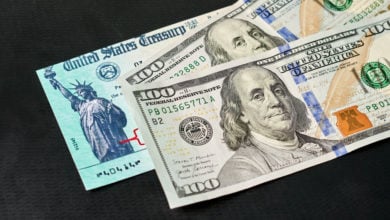In the fall of 2008, Bank of America received $25 billion of
bailout money through the Troubled Asset Relief Program, or TARP. The bank
received another $20 billion in January 2009. While the government was giving
the bank working people’s money, the bank continued to engage in predatory
lending and foreclose homes. This resulted in many of the same people who paid
for the bank bailout being kicked out of their homes.
Many victims of this capitalist atrocity are now left with
no place to call home. They are forced to live with relatives or out on the
streets, while the CEOs and executives of the Bank of America receive millions
in bonuses.
On March 24, activists in St. Louis decided to take matters
in their own hands. The day started off with a rally in front of the Bank of
America. No permit had been applied for, so there was no planning by the city
or by bank security to contain the protest. The more than 70 angry protesters
who showed up surprised the bank.
The protesters marched into the lobby holding banners
reading “People Before Profits”; “Bailout Education”; “Change is Representing
People, Not Wall St”; and “No Job? Ask Wall St. Why” and shouting militant
slogans targeting the bank for its role in the capitalist crisis and home
foreclosures. While bank security and other officials unsuccessfully tried to
calm the protesters, two activists put up a tent in the lobby. One potential
customer of the bank walked out the door with her fist in the air showing
solidarity with the protesters.
It wasn’t long before the police showed up. As always, the
police protected the bank’s interests and not those of the people, standing
between the bank and the protest. The protest continued directly outside the
bank, as the organizers concluded their rally. Meanwhile, activists set up
tents in City Park, located directly across from the B of A building. The
encampment, named “The People’s Settlement,” was then moved to a park near City
Hall, one block down the road.
The initial two-dozen people at the encampment grew, in a
few short hours, to almost 50. The tents were offered to homeless people living
in the area and free food, donated by local restaurants and individuals, was
provided for everyone in the encampment. Local bands played free sets in
solidarity with the protest. At one point, an emergency ambulance handed out
sheets to the protesters in a moving show of solidarity.
Groups involved in organizing The People’s Settlement included
Greenpeace, Instead of War, Missourians Organizing for Reform and Empowerment,
Workers International League, and the Party for Socialism and Liberation. The
encampment lasted from Wednesday, March 24, to Monday, March 29. Activities
took place every day, including actions against LGBT discrimination and
workers’ events against Macy’s and Peabody Coal. A “march of the unemployed”
concluded the week demanding that the city create more jobs for the poor and
working class of St Louis.




